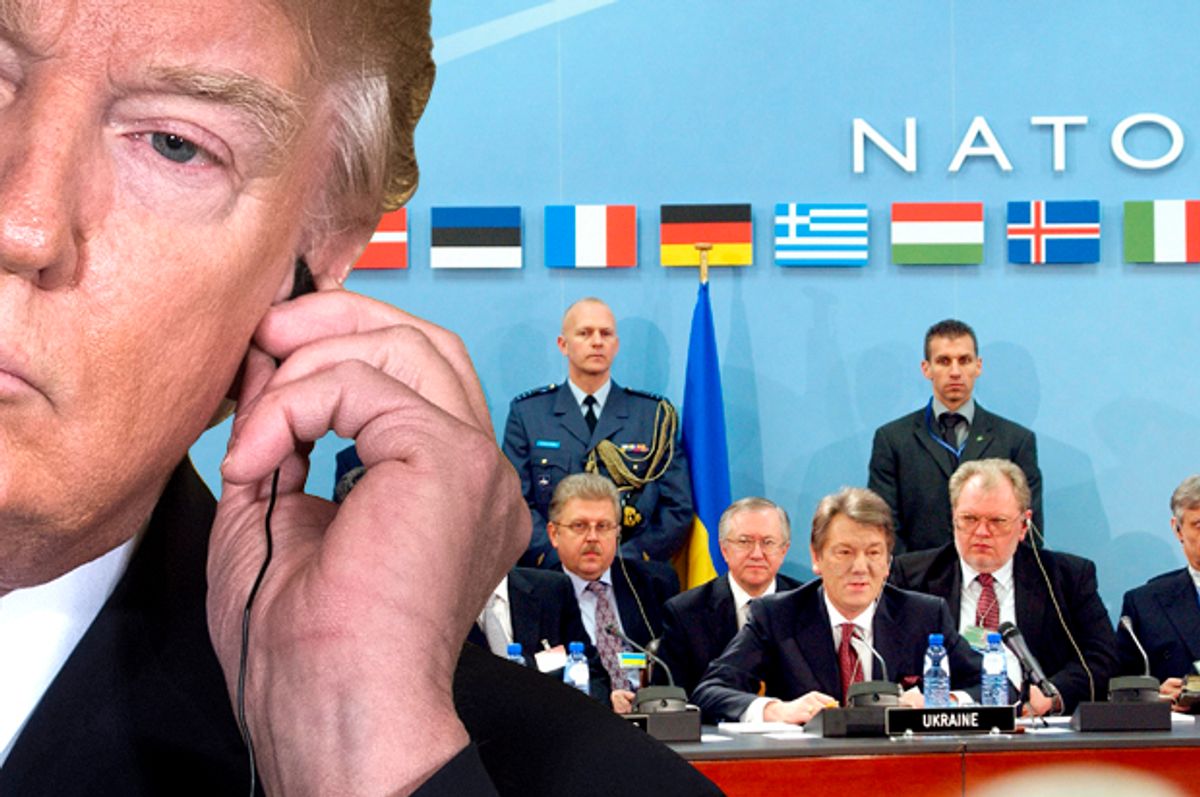Ahead of the upcoming NATO summit, on July 11, President Trump has once again engaged in his usual bullying and threatening techniques. He complains that the European allies, especially Germany, are not spending enough on defense.
With 35,000 American troops stationed in Germany, he has let be known that he might consider withdrawing all or some of them in retaliation, making the country and Europe as a whole more vulnerable to Russian expansionism.
No fake news
The Trump factor aside, the fact of the matter is that the German military, from equipment to personnel, is in a desolate state. According to a report issued by the independent commissioner to the German parliament, Hans-Peter Bartels, the German military is virtually “not deployable for collective defense.”
None of its submarines are operational. Only half of its tanks are in workable condition. Three years ago, German soldiers used broomsticks for lack of machine guns in a military exercise. And the list goes on.
Under those circumstances, raising Germany’s level of defense spending credibly toward the 2% of GDP target, as the NATO partners pledged to achieve by 2024, is a matter of common sense and mere self-respect.
Germany, usually a master of budgetary planning and not exactly struck with poverty, is nowhere near that target. The 2024 defense spending number is more likely to be around 1.5% of GDP, just 0.3 percentage points more than in 2017.
No doubt, the current U.S. President is wrong on almost any international policy issue he pursues. For example, Donald Trump completely misunderstands the NATO alliance’s strategic importance to the United States.
But the endless list of his foibles, his impulsive outbursts and his grave errors of judgment are no reason for the German government not to do more on defense — and do it now.
Maintaining baseline credibility
That is not a matter of the “militarization” of German foreign policy, as some incorrigible leftists claim. It is a matter of national and international prudence and the maintenance of baseline credibility.
In the “B.T.” (=before Trump) era, it might have been tactically understandable, though not strategically acceptable, to rely on other nations (i.e., the United States) for one’s defense.
But the increasing irrationality of U.S. policy and the troubling Putin-Trump alliance should be a clear wake-up call even to the biggest German doubters on the defense issue.
Time for Europe to act
In a new era of American isolationism, it is no longer sufficient to complain about the lack of U.S. reliability. It is high time for Europe to act.
For Germany, this means not counting on the 35,000 American troops presently in the country. Mr. Trump may indeed eventually make them redundant.
To be sure, there are those who deem Mr. Trump an anomaly. That may well apply to the high degree of absurdity he often displays in his actions. And those in Germany who don’t want to spend more on defense hope that Trump may soon vanish from the international stage.
But that would be — yet again — a very short-sighted calculation that will prove off the mark. This American President is not an anomaly when it comes to telling other nations, including major allies, that it is high time they take care of their own needs.
In the future, the underlying “you’re on your own” message may be expressed less harshly than it is by Mr. Trump. But expressed it will be. Europeans are therefore well-advised to take this change in the American mindset seriously and address it by becoming far more self-reliant on defense than they have been accustomed to.
This article is republished from The Globalist: On a daily basis, we rethink globalization and how the world really hangs together. Thought-provoking cross-country comparisons and insights from contributors from all continents. Exploring what unites and what divides us in politics and culture. Follow us on Facebook and Twitter. And sign up for our highlights email here.




Shares